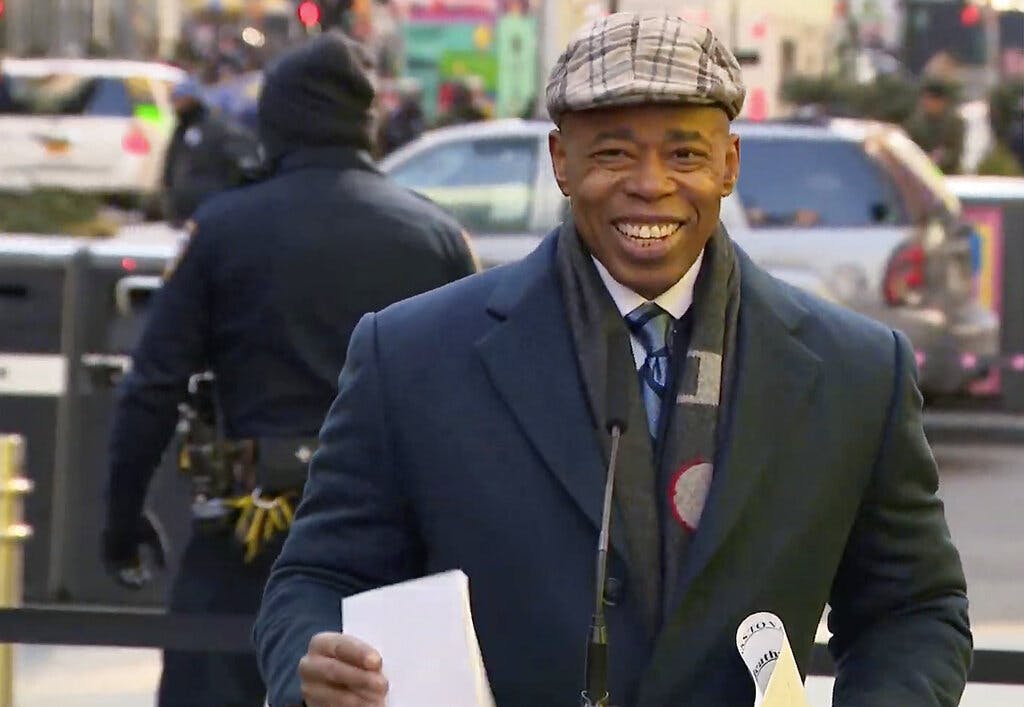Adams Administration Gets Mandate to Drill Down on Educational Agenda
The Adams administration will now turn its attention to the educational agenda the mayor has been announcing over the past few months: increasing resources for gifted and talented programs, dyslexia support, and minorities studies programs.

Mayor Adams will have the chance to implement his educational vision — or at least attempt to do so — for at least two years, after a last-minute extension of mayoral control.
At the eleventh hour on Thursday, Governor Hochul signed into law the legislature’s bill to extend mayoral control over New York City’s public schools for two more years.
The Adams administration will now turn its attention to the educational agenda the mayor has been announcing over the past few months: increasing resources for gifted and talented programs, dyslexia support, and minorities studies programs.
Mr. Adams and his education chancellor, David Banks, have promised to expand gifted and talented programs for students across the city. This spring, kindergarten students were universally screened for such programs — a departure from the previous testing program.
The city will begin operating G&T programs in every school district, and the number of seats will increase in these programs.
Third grade will now be an important entry point, and G&T programs will now offer seats for 1,000 more third graders. There will also be 100 more kindergarten seats.
The city will also invest more resources into supporting dyslexic students. Public school will be universally screened for dyslexia.
“We’re going to identify it early, give them support early, and ensure that they could have the right support as they move throughout their education,” the mayor, who has dyslexia himself, said in a May press conference.
The mayor has touted this as potentially a crime fighting measure. “30 percent of our inmates in prison are dyslexic,” Mr. Adams said, describing dyslexia screening and intervention as “prevention.”
The mayor has also promised to expand New York’s minority-centered curriculum, Hidden Voices, to include the stories of Asian-American and Pacific Islanders in New York.
“We think about the stories of all the important Asian Americans who helped to build our nation, but whose names may still be missing from the history books,” said the education chancellor in May. “Well, that changes today.”
“There’s nothing more tragic than a Caribbean student sitting next to an AAPI student, not knowing the rich history of that student,” Mr. Adams said at the announcement. “There’s nothing more tragic than a child from the Dominican Republic sitting next to a person from the continent of Africa and not knowing their history.”
While Mr. Adams promised to work on these items, it was not a given that he would have the power of New York schools necessary to implement them.
He entered office in the middle of the academic year, when schools were still bound to policy decisions made by his predecessor, Mayor De Blasio. Mayoral control was set to expire at the end of June, and the state legislature did not easily offer its support for renewing the mandate.
Mayoral control, long a divisive issue between the state government, operates on multi-year mandates with sunset clauses. The Empire State’s constitution gives the state power over all schools, usually exercised through the Board of Regents — appointed by the legislature
Since 2002, however, Albany has delegated power over the city’s schools to the mayor, after a long campaign by Mayor Bloomberg. This year, however, mayoral control was diluted by legislature.
The legislature had amended mayoral control, putting additional restraints on the mayor’s power over the Panel for Educational Policy. Eight seats were added to the school board — including five that the mayor would not have appointment oversight for.
The new law restricts whom the mayor could appoint to the panel. He will need to appoint four public school parents — at least two of which are parents of children with special needs — one with an individualized learning program and one in a District 75 school for more severe learning disabilities. Additionally, one of his appointees will be a parent of a bilingual student or one who speaks English as a second language.
Members of the new, 24-member panel will also have fixed terms. Each member would serve a one-year term, and appointments cannot be revoked if a member voted against the agenda of the mayor or whomever made the appointment.
The law that Ms. Hochul signed, however, is not identical to the one passed by the legislature in April. The legislature’s bill sought to implement changes to the Panel for Educational Policy over the summer. The new law gives more time for the adjustments — new PEP regulations will go into effect in January.
Ms. Hochul has also not signed a bill from the legislature that mandates New York City lower class sizes. Legislators made mayoral control contingent upon the passage of this bill, which substantially increased the bargaining power of teachers unions.
“We are calling on the governor to sign this legislation now,” said the president of the United Federation of Teachers, Michael Mulgrew, Friday morning. “Our students can’t wait.”
In a statement, Mayor Adams thanked the governor “for championing on behalf of our students” and allowing him “to keep the politics out of our schools to provide bold and necessary programs for the betterment of our children.”

